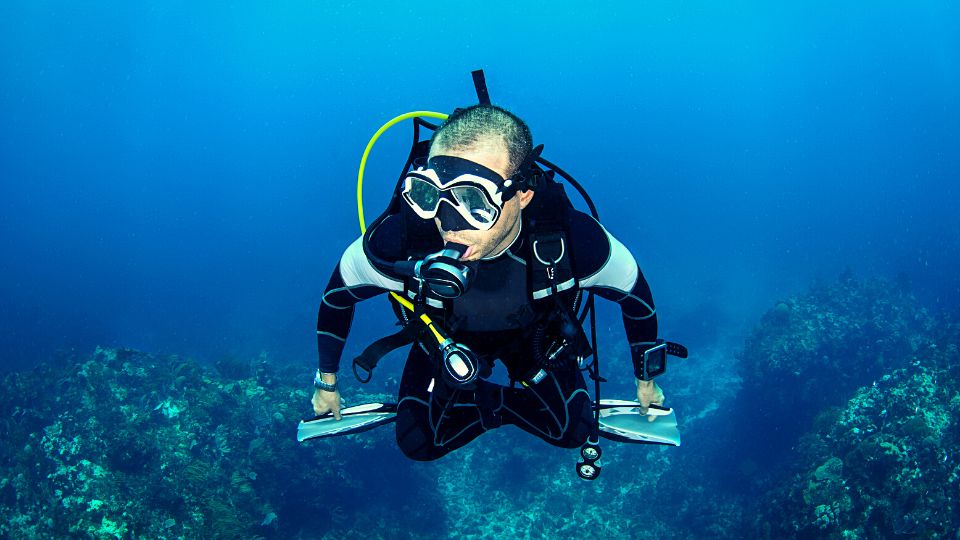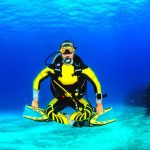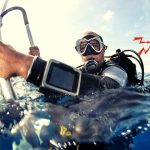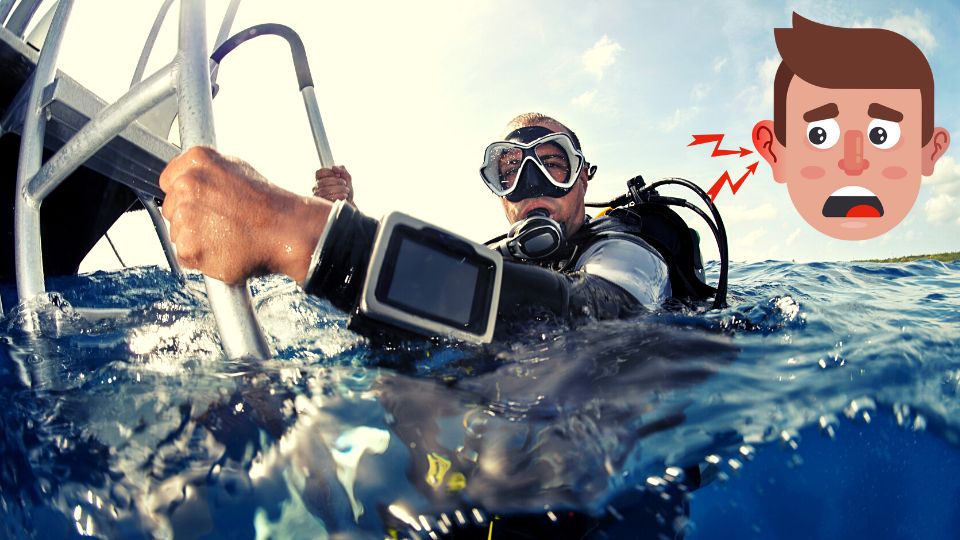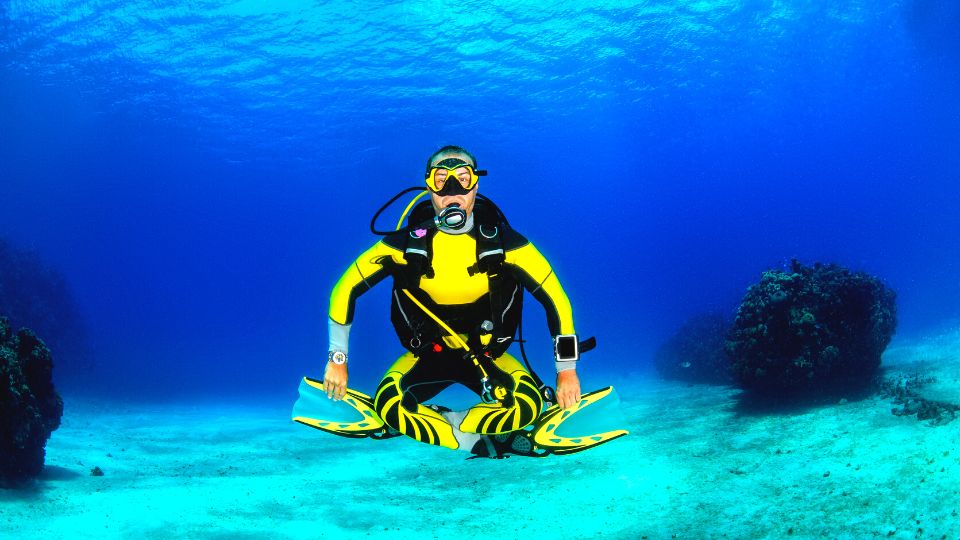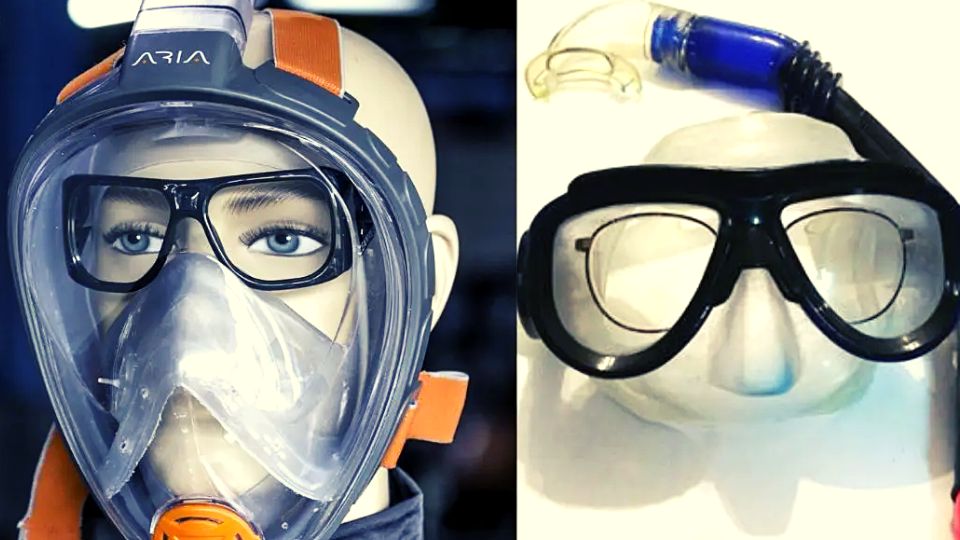Are you curious about what scuba diving is all about? Scuba diving is a thrilling underwater adventure that allows you to explore and discover the beauty of the ocean.
From recreational diving to scientific research and military operations, scuba diving has many applications and benefits.
If you’re interested in learning more about this exciting sport, this complete introduction to scuba diving will provide you with the essential knowledge you need to get started.
History of Scuba Diving
Scuba diving is an underwater diving activity that involves the use of a self-contained underwater breathing apparatus (scuba) to breathe underwater. This form of diving allows for greater mobility and longer dive times.
Scuba diving has a rich history that dates back centuries. Over time, divers have continued to innovate and improve upon their equipment, leading to the development of modern scuba diving as we know it today.
Early Development of Diving
People have been diving for centuries, with the earliest diving attempts dating back to ancient Greece and Rome. These early diving attempts were mostly for commercial purposes such as sponge diving and pearl diving.
Several historical figures contributed to the development of diving over the centuries. Some notable names include Leonardo da Vinci, who designed one of the earliest diving suits, and Alexander von Humboldt, who made significant contributions to diving technology.
The Invention of the Aqualung
The Aqualung, which is the device that allowed for modern scuba diving, was invented in 1943 by Jacques-Yves Cousteau and Emile Gagnan. This device allowed for divers to stay underwater for extended periods of time, making scuba diving a more viable option for exploration and research.
Cousteau and Gagnan are considered to be the fathers of modern scuba diving. Their invention of the Aqualung changed the face of diving forever and paved the way for the development of modern scuba diving as we know it today.
Did you know? Early versions of scuba diving equipment were actually used for military purposes during World War II. Frogmen, who were members of specialized underwater military units, used rebreathers to enable them to approach enemy ships and sabotage them. This was the first use of underwater breathing apparatus for non-commercial or non-scientific purposes, and it laid the groundwork for the development of recreational scuba diving as we know it today.
Development of Recreational Scuba Diving
Scuba diving has grown in popularity over the years, with millions of people around the world enjoying this activity every year. This growth in popularity has been driven by advancements in diving equipment and the establishment of certification agencies.
The establishment of dive certification agencies such as PADI, NAUI, and SSI has helped to make scuba diving more accessible and safer for people around the world. These agencies provide training and certification programs that ensure divers have the necessary skills and knowledge to dive safely.
Dive tourism has become a significant industry in many parts of the world. Popular destinations such as the Great Barrier Reef in Australia, the Red Sea in Egypt, and the Caribbean Sea attract millions of divers every year.
Technological Advancements in Scuba Diving
Scuba diving equipment has come a long way since the invention of the Aqualung. Innovations such as lightweight materials, better breathing apparatus, and improved wetsuits have made diving safer and more comfortable for divers.
Diving computers and other technology have made it easier for divers to monitor their dive times, depth, and other important data. This technology has helped to make diving safer and more efficient.
Advancements in technology are likely to continue to shape the future of scuba diving. Innovations such as underwater drones, virtual reality, and improved rebreathers are already changing the way divers explore and experience the underwater world.
Types of Scuba Diving
There are many different types of scuba diving, ranging from recreational to technical dives. Here is everything you need to know every each one.
Recreational Scuba Diving
Scuba diving is a popular recreational activity that allows people to explore the underwater world. Recreational diving is done for fun, adventure, and the opportunity to experience marine life up close.
People scuba dive for a variety of reasons, including the desire to explore and connect with nature, to experience adventure and adrenaline, and to challenge themselves physically and mentally. Scuba diving can also be a way to escape the stresses of everyday life and immerse oneself in a new environment.
Popular recreational scuba diving destinations include tropical locations such as the Caribbean, Hawaii, and the Great Barrier Reef in Australia. Other popular diving spots include shipwrecks and underwater caves.
Scientific Scuba Diving
Scientific scuba diving is the use of scuba diving techniques to conduct scientific research underwater. This can include studying marine life, observing oceanographic features, and monitoring the health of marine ecosystems.
Scuba diving is an important tool for scientific research in marine biology, oceanography, and environmental science. By allowing researchers to study marine life and ecosystems up close, scuba diving helps to increase our understanding of the ocean and the role it plays in the planet’s ecosystems.
Examples of scientific research projects that use scuba diving include the study of coral reefs and their ecological importance, the monitoring of underwater volcanoes and geothermal vents, and the exploration of marine biodiversity.
Commercial Scuba Diving
Commercial scuba diving is the use of scuba diving techniques for business purposes. This can include underwater construction, salvage, and maintenance work, as well as aquaculture and underwater photography.
Scuba diving is used in a variety of commercial industries, including underwater construction and maintenance, oil and gas exploration, and commercial fishing. Divers can also work in the tourism industry, leading dive tours and teaching scuba diving courses.
Examples of jobs that require scuba diving include underwater welders, offshore oil rig divers, and commercial fishermen who use diving equipment to collect seafood.
Military Scuba Diving
Military scuba diving is the use of scuba diving techniques by military personnel for various purposes, including reconnaissance, underwater demolition, and mine removal.
Scuba diving is an important tool for military operations that require underwater work, including reconnaissance and sabotage missions. Military divers can also be used to secure ports and harbors, clear underwater obstacles, and conduct search and rescue missions.
Examples of military operations that require scuba diving include reconnaissance missions, underwater demolition work, and mine removal.
Rescue and Recovery Scuba Diving
Rescue and recovery scuba diving is the use of scuba diving techniques to locate and recover underwater objects or people. This can include searching for missing persons, salvaging shipwrecks, and recovering evidence from underwater crime scenes.
Scuba diving is an important tool for rescue and recovery operations, allowing divers to search for and recover objects or people in difficult-to-reach underwater locations. It is used by law enforcement agencies, search and rescue teams, scientists, and archaeologists.
Examples of rescue and recovery operations that use scuba diving include searching for missing persons or evidence from underwater crime scenes, locating lost objects in shipwrecks, and recovering archaeological artifacts from underwater sites.
How Scuba Diving Works
So, you know that scuba diving is a thrilling and exciting activity that allows you to explore the depths of the ocean. But have you ever wondered how it actually works? In this section, we’ll take a look at the science behind scuba diving and how the equipment enables divers to breathe underwater.
Basic Physics of Scuba Diving
Scuba diving involves navigating through a medium that is denser than air, which makes understanding basic physics essential. One of the most important concepts in scuba diving is pressure, which refers to the force exerted by a fluid on an object. Another important concept is buoyancy, which is the ability of an object to float or sink in a fluid.
As a diver descends, the pressure around them increases, compressing the air in their lungs and equipment. This increase in pressure can cause the volume of the air to decrease, which is why it’s essential to equalize the pressure in the ears and mask as the diver descends.
Conversely, as a diver ascends, the pressure around them decreases, causing the air in their lungs and equipment to expand. This expansion can cause damage to the lungs, ears, and other air-filled spaces in the body, which is why divers must follow proper decompression protocols.
Additionally, equipment like dive computers and pressure gauges rely on pressure readings to provide accurate information to the diver.
Breathing Underwater
Breathing underwater requires the use of specialized equipment, including a regulator, air tank, and other components. The regulator is the key piece of equipment that allows a diver to breathe compressed air from the tank.
The regulator has two main stages. The first stage reduces the pressure of the air in the tank, while the second stage delivers air to the diver on demand. The second stage includes a mouthpiece, which the diver bites down on to create a seal and inhale air. The mouthpiece also has a purge button that allows the diver to expel water if it enters the regulator.
When a diver inhales compressed air from the tank, the air is at a higher pressure than the surrounding water. This higher pressure causes the air to be denser, which means that the body must work harder to inhale it.
Additionally, the body must adapt to the increased carbon dioxide levels in the body, which can cause feelings of dizziness or disorientation if not properly managed.
Scuba Diving Equipment
Scuba diving equipment is designed to allow the diver to breathe underwater and maintain buoyancy. The following are the essential pieces of scuba diving equipment:
Scuba Diving Mask
A scuba diving mask is an essential piece of equipment that allows the diver to see clearly underwater. Masks come in different sizes and styles, and it’s important to select one that fits comfortably and has a good seal.
Wetsuit
A wetsuit is a garment made of neoprene that helps to keep the diver warm and protect the body from scratches and stings. Wetsuits come in different thicknesses, depending on the water temperature and the diver’s preference.
Regulator
The regulator is the most important piece of scuba diving equipment, as it allows the diver to breathe underwater. The regulator consists of a first stage, a second stage, and a low-pressure hose.
Fins
Fins are essential for moving efficiently through the water. They come in different styles and sizes and can be made from various materials.
Buoyancy Control Device
The bouyance device, also known as BCD, helps the diver maintain neutral buoyancy while underwater. It can be adjusted to change the diver’s buoyancy as needed.
How the Equipment Works Together
All of the scuba diving equipment works together to enable the diver to breathe underwater and maintain buoyancy. The regulator allows the diver to breathe, while the wetsuit protects the body and keeps the diver warm. The fins help the diver move efficiently through the water, and the bouyancy device helps the diver maintain neutral buoyancy. The mask enables the diver to see clearly underwater, which is important for safety and enjoyment.
Gas Laws in Scuba Diving
Gas laws play an important role in scuba diving as they affect how the body and equipment react to changes in pressure underwater. These laws explain how the volume, temperature, and pressure of gas change in different conditions, including changes in depth, temperature, and volume of gas.
How the gas laws affect the body and equipment underwater
One of the most important gas laws in scuba diving is Boyle’s Law, which states that the volume of a gas decreases as pressure increases and vice versa. This means that as a diver descends to greater depths, the pressure increases and the volume of the gas in the diver’s lungs and scuba tank decreases. Failure to manage this change in pressure can result in serious injury or death.
Another important gas law is Henry’s Law, which states that the amount of gas dissolved in a liquid is directly proportional to the pressure exerted on the liquid. This law affects how nitrogen dissolves in the body’s tissues during a dive and how the body eliminates nitrogen during decompression.
Importance of understanding gas laws in scuba diving
Understanding gas laws is crucial for safe scuba diving. Divers must be aware of the effects of pressure on the volume of gas in their tanks and their bodies, as well as the effects of gas absorption and elimination in their tissues.
Failure to manage gas laws correctly can result in decompression sickness, lung overexpansion injuries, and other serious medical conditions. Scuba divers are trained to monitor their depth, time, and gas consumption to avoid exceeding safe limits and to follow established decompression schedules to avoid nitrogen build-up in their tissues.
Training and Certification
Scuba diving is a thrilling and rewarding activity that allows you to explore the underwater world. However, it’s important to recognize the inherent risks involved in scuba diving, such as decompression sickness, nitrogen narcosis, and equipment failure. As a result, it is crucial to have a solid understanding of safety procedures and proper training before attempting to dive.
Proper training provides you with the knowledge and skills needed to scuba dive safely. It is recommended to complete a scuba diving course that includes both classroom instruction and practical experience in a pool or controlled open water environment. Through training, you’ll learn how to use scuba diving equipment, underwater communication, and emergency procedures.
There are a variety of scuba diving certification organizations that offer training and certification programs. The most widely recognized is the Professional Association of Diving Instructors (PADI), but there are other organizations such as the National Association of Underwater Instructors (NAUI) and the Scuba Diving International (SDI).
PADI
PADI offers a wide range of courses that cater to all levels of divers, from beginner to advanced. Their Open Water Diver course is the most popular and teaches the foundational knowledge and skills required to dive safely. Additionally, PADI offers various specialty courses such as night diving, deep diving, and wreck diving.
NAUI
NAUI offers similar courses to PADI, but with an emphasis on hands-on training and self-reliance. Their Open Water Scuba Diver course covers diving safety, dive equipment, and basic diving techniques.
SDI
SDI focuses on eLearning, which allows students to complete the academic portion of the course at their own pace online. They offer a wide range of courses, including the Open Water Scuba Diver course, as well as specialty courses such as underwater photography and search and recovery diving.
No matter which organization you choose, it’s important to select a training program that meets your needs and fits your schedule. After completing your scuba diving course, you will receive a certification card that proves your training and competence to dive.
Health and Safety Considerations
It’s important for divers to be aware of the potential dangers and to take necessary precautions to ensure their safety.
Potential Risks and Hazards
One of the primary risks associated with scuba diving is decompression sickness, also known as “the bends.” This occurs when nitrogen bubbles form in the bloodstream due to a too-rapid ascent from depth.
Other potential hazards include running out of air, entanglement in fishing nets or other underwater debris, and marine life encounters that can result in injury or illness.
Here are some tips for handling potential problems while scuba diving:
- Stay calm: Panic can cause even more problems, so it’s important to stay calm and focused if an issue arises.
- Ascend slowly: If you experience a problem with your equipment or your body, ascend slowly to avoid decompression sickness.
- Check your gear: Take a moment to assess your gear and make sure everything is functioning properly.
- Buddy system: Always dive with a buddy, and communicate any issues you encounter so they can help you troubleshoot or seek assistance.
- Use your training: Draw on your scuba diving training to help you problem-solve and handle any issues that may arise.
- Have a plan: Before every dive, make sure you have a plan in place for emergency situations and communicate it with your dive buddy.
- Follow established safety protocols: Follow established safety protocols, such as dive tables, depth limits, and ascent rates, to minimize the risk of potential problems.
- Be prepared: Carry a small emergency kit with basic first-aid supplies and any necessary medications, and have a plan in place for getting help if needed.
- Don’t push yourself: If you feel uncomfortable or unsure about a dive, don’t hesitate to cancel or postpone it.
- Report any incidents: If you encounter a problem or have a close call while diving, report it to your dive operator or certifying agency so that they can investigate and take any necessary measures to ensure the safety of future divers.
Proper Equipment Maintenance
Proper equipment maintenance is critical to ensure safe diving. All scuba diving equipment should be regularly inspected and maintained by a qualified professional.
This includes the regulator, buoyancy control device, dive computer, and other pieces of equipment. You should also make sure you have appropriate gear for the specific type of diving you will be doing.
One common mistake that people make when it comes to scuba diving equipment maintenance is not following the manufacturer’s guidelines for care and maintenance. Many people assume that simply rinsing their gear with freshwater after use is enough to keep it in good condition, but this is not always the case.
Different types of equipment require different types of care, and failure to follow proper maintenance procedures can lead to premature wear and tear, damage, and even equipment failure during a dive. It’s important to carefully read and follow the manufacturer’s recommendations for cleaning, drying, and storing your scuba gear to ensure that it lasts as long as possible and continues to function properly.
Dive Planning
Proper dive planning is essential to ensuring a safe and enjoyable dive. This includes checking weather conditions, tides, and currents, as well as knowing the location of emergency services.
You should also make sure you have enough air for the dive and plan your ascent and descent rate to avoid decompression sickness.
Following Established Safety Protocols
You should always follow established safety protocols, including those recommended by training agencies and other diving professionals. This includes performing pre-dive safety checks, practicing proper buoyancy control, using hand signals to communicate with dive partners, and not diving alone.
Benefits of Scuba Diving
Scuba diving offers a number of physical, mental, and emotional health benefits. Lets explore some of the top benefits of scuba diving.
Reduces Stress and Anxiety
One of the primary benefits of scuba diving is that it can help reduce stress and anxiety. The experience of being underwater in a peaceful environment, surrounded by beautiful marine life, can help you relax and unwind. The slow, controlled breathing required for scuba diving can also help reduce stress levels.
Boosts Mood and Confidence
Scuba diving can also improve your mood and boost your confidence. The sense of adventure and achievement that comes with exploring new underwater environments can leave you feeling empowered and invigorated. Diving can also provide a sense of community and increase social interaction, which can further boost your mood.
Enhances Respiratory Health
Scuba diving involves controlled breathing techniques that can help enhance respiratory health. By taking slow, deep breaths, divers can increase lung capacity and better manage respiratory conditions such as asthma.
Provides Vitamin D
Scuba diving can also provide a source of Vitamin D, which is essential for strong bones and overall health. Exposure to natural sunlight is important for Vitamin D synthesis, but it’s also important to practice proper sun protection to prevent skin damage.
Increases Strength and Flexibility
Swimming and diving require significant physical exertion, which can help increase strength and flexibility. The resistance of the water can help build muscle tone and improve flexibility, while also being a low-impact form of exercise.
Environmental Impact of Scuba Diving
Scuba diving can have both positive and negative impacts on the environment. It is crucial to practice responsible diving techniques, choose eco-friendly products, and support conservation efforts to mitigate these impacts.
Damage the marine ecosystems
One of the most significant impacts of scuba diving is the damage to fragile marine ecosystems. Divers can accidentally damage delicate corals, disturb marine life, and leave behind trash that can harm the marine environment. This is why it is crucial to practice responsible diving techniques and follow established guidelines and protocols to protect the ecosystem.
Release of carbon dioxide into the water
Another significant impact of scuba diving is the release of carbon dioxide and other gases into the water, which can have negative consequences on the marine environment. The bubbles released by divers can cause harm to marine life and affect the water quality. To mitigate this impact, divers can reduce their air consumption by practicing proper breathing techniques and diving with a full tank of air.
Raise awarness about marine life
Scuba diving can also have a positive impact on the marine ecosystem. Divers can raise awareness of environmental issues and encourage others to protect marine life. Divers can participate in beach clean-ups and conservation efforts to promote a healthier marine environment.
Efforts are being made to protect and conserve marine ecosystems around the world. There are numerous conservation organizations and programs dedicated to protecting the oceans, and scuba divers can contribute to these efforts by participating in conservation projects or supporting eco-friendly businesses.
How to Get Started With Scuba Diving
Getting started with scuba diving can seem daunting, but with the right guidance and preparation, anyone can begin this exciting underwater adventure.
Here is a step-by-step guide on how to get started with scuba diving:
- Research local scuba diving options: Look for local scuba diving schools, training facilities, and dive shops in your area. Check reviews, credentials, and pricing to find the best option for your needs.
- Determine your physical readiness: Scuba diving requires good physical health, so it’s important to check with your doctor to ensure that you are fit to dive. Be sure to disclose any medical conditions that may affect your diving.
- Enroll in a scuba diving course: Find a reputable training facility or scuba diving school to enroll in a course that fits your skill level. A beginner’s course typically covers the basic skills and safety procedures necessary for diving.
- Get the necessary gear: You will need to rent or purchase scuba diving gear, including a wetsuit, fins, mask, and regulator. Be sure to consult with your instructor or dive shop for recommendations on appropriate gear for your skill level and the type of diving you will be doing.
- Participate in pool training: Most scuba diving courses include pool training to give you an opportunity to practice basic skills and become comfortable with the equipment.
- Complete open water dives: After completing your pool training, you will need to complete a set number of open water dives to gain experience and apply your skills in real-life conditions. This may be done through a guided tour, excursion or by joining a dive club.
- Obtain certification: After completing your course and open water dives, you will need to pass a certification test to receive your scuba diving certification.
- Continue learning and practicing: Once certified, it’s important to continue practicing and learning about scuba diving. Take additional courses to expand your skills and knowledge or dive frequently to stay familiar with the equipment and techniques.
Can You Make Money As A Scuba Diver?
While not everyone may be able to make a living solely from scuba diving, there are several ways that this activity can be profitable. But by pursuing scuba diving training and experience, building a network of contacts, and establishing oneself as an expert in the field, it is possible to turn scuba diving into a viable career path.
Here are some ways to turn your hobby into a full-time job.
Professional Scuba Diving
The most obvious way to make money as a scuba diver is by becoming a professional. There are several avenues to explore, including working as a dive instructor, divemaster, commercial diver, or underwater photographer/videographer. Each of these fields requires different levels of training and experience, but all can be a rewarding career path.
Dive Shop Ownership
Owning and operating a dive shop can be another way to make money as a scuba diver. This requires a significant investment and a lot of hard work, but it can be a fulfilling and profitable venture for those who are passionate about the sport. A dive shop owner may also choose to offer scuba training and certifications, as well as gear rentals and sales.
Underwater Services
Scuba diving can also be used to provide underwater services, such as marine conservation efforts, scientific research, or underwater construction and maintenance. These services can be in high demand and can offer an excellent source of income for experienced and certified divers.
Competition and Sponsorship
For those who excel in scuba diving competitions or have a significant following on social media, sponsorships and endorsements can be a lucrative source of income. Many dive gear and related companies are eager to partner with successful divers and promote their products to a wider audience.
Scuba Diving Travel
Scuba diving travel can also be a way to make money, especially for those with an adventurous spirit and a willingness to explore exotic locations. Experienced and knowledgeable divers can lead guided tours or become expedition leaders, providing expertise and guidance to novice divers and experienced enthusiasts alike.
Starting a Scuba Diving Blog or Vlog
For those who love to write or have a talent for videography, creating a blog or vlog focused on scuba diving can be a way to make money. This requires a dedicated following and a consistent output of content, but it can be a way to monetize your love for the sport while sharing your passion with others.
Conclusion
In conclusion, scuba diving is an exhilarating and fascinating activity that allows individuals to explore and experience the underwater world. With the proper training, equipment, and safety procedures, scuba diving can be a safe and rewarding experience.
From recreational diving to scientific research and commercial diving, there are a variety of opportunities for individuals to use their scuba diving skills in various fields. As with any activity, it is important to understand the potential risks and to take proper precautions to ensure a safe and enjoyable dive.
With this guide, you now have a complete introduction to the world of scuba diving and can start your journey to discovering the underwater world.

